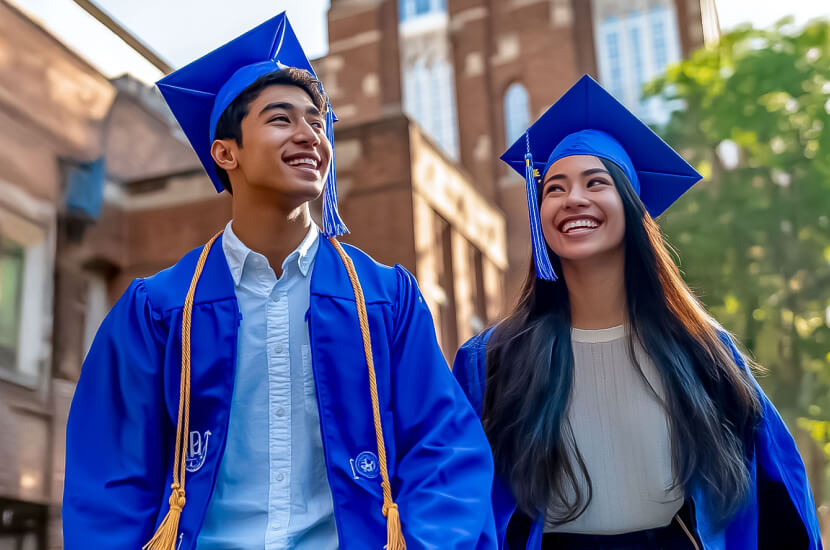Understanding the process: The basics
Before packing your bags and booking a flight, it’s essential to understand the formal process and legal requirements for moving to the U.S. as an international student.
1. Securing admission to a U.S. institution
The first step in moving to the United States for study is gaining admission to a U.S.-based university. Once admitted, you’ll need to ensure your institution is certified by the Student and Exchange Visitor Program (SEVP). Upon acceptance, the school will provide you with a Form I-20, which is required for your student visa application.
2. Applying for an F-1 student visa
The F-1 visa is the most common type of U.S. student visa for international students in the U.S. Here’s a brief overview of how to apply for an F-1 visa:
- Pay the SEVIS fee: The Student and Exchange Visitor Information System (SEVIS) fee must be paid to register your I-20 form. This fee is non-refundable.
- Complete the DS-160 form: This is the online application form for non-immigrant visas. You will need to submit a digital photo as part of the application.
- Schedule a visa interview: Once you’ve completed the DS-160 form, schedule an interview at the nearest U.S. embassy or consulate. Wait times can vary, so it’s important to apply early.
- Prepare for the interview: Gather all necessary documents, including your passport, I-20 form, financial documents, SEVIS fee receipt, visa application fee receipt and academic transcripts.
3. Financial proof and planning
During the visa process, you’ll need to provide evidence of your ability to financially support yourself during your stay. This includes covering tuition, living expenses, health insurance and travel costs. Be prepared with bank statements, private loan support, affidavits of family support and/or scholarship letters.
4. Health insurance requirements
The U.S. does not have a national healthcare system, and international students are required to have health insurance. Some universities offer their own health insurance plans, but you may need to purchase private insurance if your school doesn’t provide coverage. Ensuring you have proper international student health insurance before arriving is critical.


